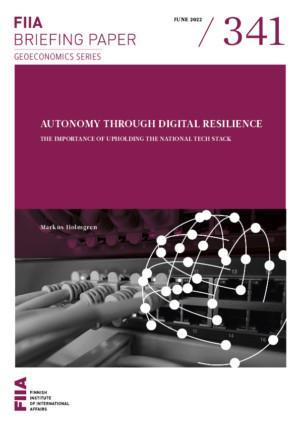The national tech stack refers to the totality of a nation’s technological capability, including its infrastructure, supply chains, governance, and knowledge base. In a digitally interconnected world, strong and resilient tech stacks are the key to maintaining the capability for autonomous decision-making.
Expertise is key for digital resilience. Once knowledge of how to build, repair, rebuild, reconnect, or reform technological infrastructure is lost, it cannot be quickly replaced.
Even-handed binding regulation is paramount for strengthening digital resilience. Yet not all regulation is beneficial, which is why expertise and public-private cooperation are important. Legislation should bind actors irrespective of the technologies utilised.
It is impossible for any nation to invent updates and build digital capabilities by itself in a way that competes with the rest of the world. Therefore, attempting excess self-sufficiency is counterproductive. Instead, nations need to secure access to critical international data and service flows, for which reason mutual reliability and goodwill should be strategically developed.
Tech stacks are closely interlinked with one another, which means that enforcing common rules increases performance and digital resilience.
This Briefing Paper has been prepared as part of FIIA’s cooperation with the National Emergency Supply Agency (NESA).


